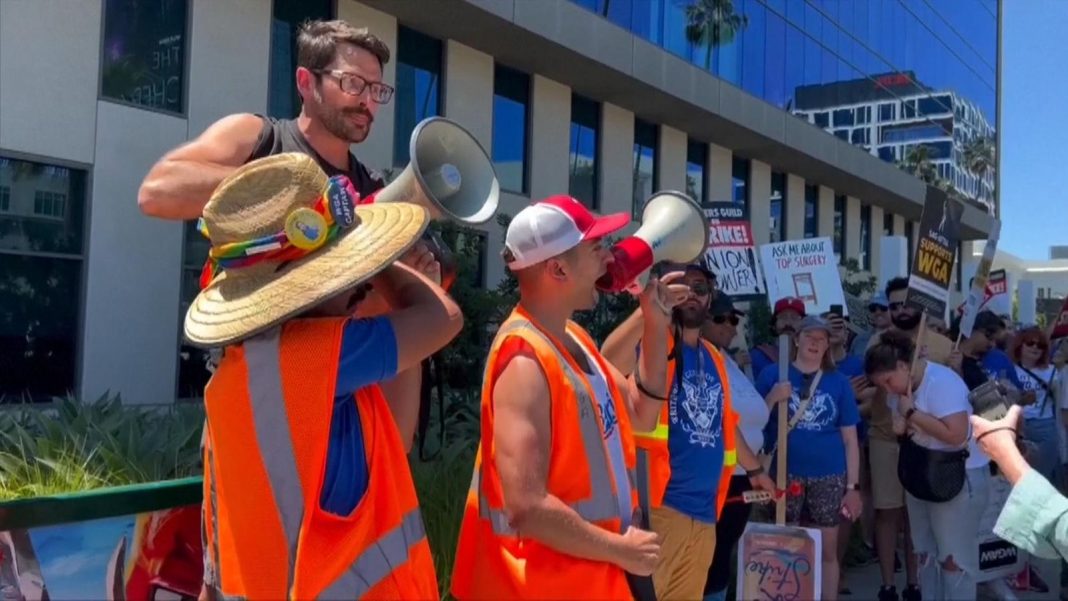Writers have been treading the pavements with picket signs outside the Netflix building in Hollywood for two months now.
The midday sun is punishing but they stride on – some wearing headphones, others chatting with friends.
Every couple of minutes, a passing motorist beeps their horn in support.
Please use Chrome browser for a more accessible video player
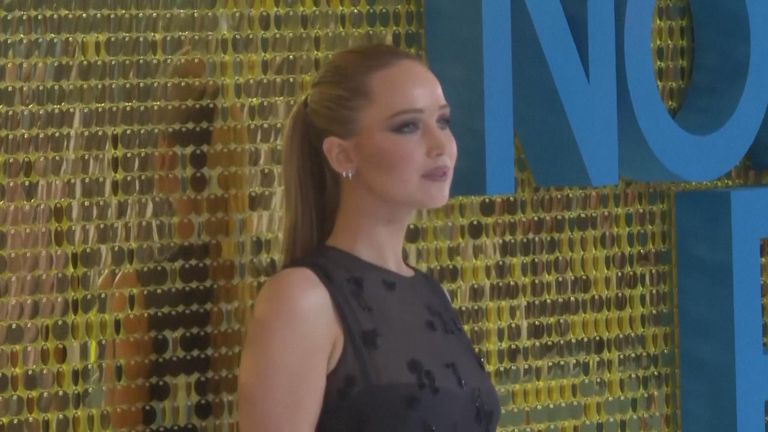
0:56
What’s behind Hollywood actors’ strike?
A huge cheer erupts as they hear news that the actors will soon be joining them on the picket line.
They know a walkout of 98,000 members of SAG-AFTRA, the actors’ union, makes their strike action even more impactful.
In total, an estimated 160,000 actors and performers are expected to take part.
Production had been limping along in a small number of shows and films which were already written.
This dual strike, the first for 63 years, means the entertainment industry will grind to a complete halt almost immediately.
Without writers and actors, very little can be achieved.
“We didn’t want it to come to this,” Michele Mulroney, the Writers Guild of America vice president, tells me, “We would rather be practising the craft we love of writing and acting. But unfortunately the studios have been unwilling to seriously consider the existential needs of our two memberships. The Screen Actors Guild has been standing with the Writers Guild since day one, and we will now stand with them.”
Read more:
Why are US actors striking?
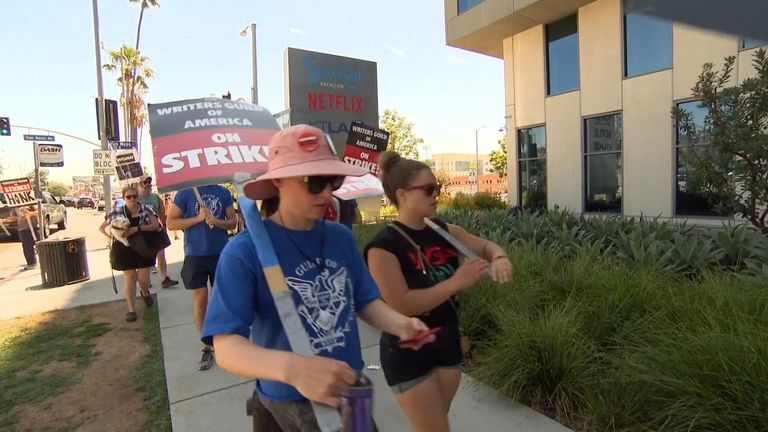
SAG-AFTRA said the industrial action – which is being held amid anger over pay, conditions and concerns over the use of artificial intelligence (AI) – begins on Friday morning.
The union also warned no date for its end has been set.
As the strike was announced, stars including Matt Damon walked out of the London premiere of historical epic Oppenheimer to “write their picket signs”, the film’s director Christopher Nolan said.
Please use Chrome browser for a more accessible video player
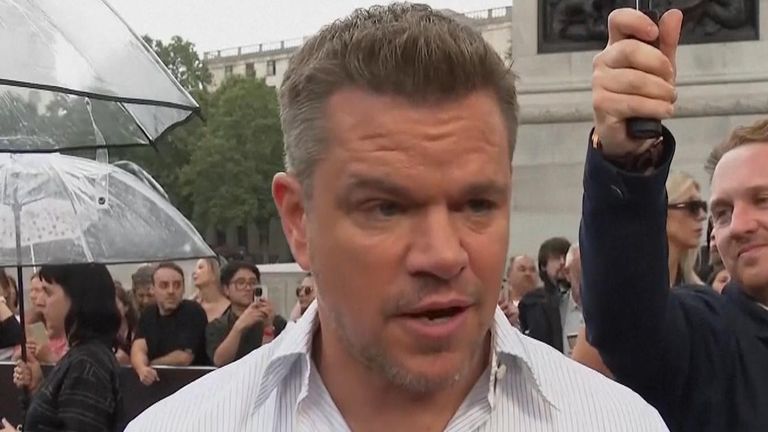
0:43
Matt Damon: ‘Actors need fair contracts’
The last time a dual strike happened Marilyn Monroe was staring in films. It is a watershed moment for the industry and it heaps pressure on the production studios and streaming giants to try and find a solution.
One of the main sticking points in negotiations were residual payments, a form of royalties, which actors say are inadequate, especially since the streamers became the dominant force in the industry.
“We’re being squeezed and squeezed and squeezed,” one picketer told me.
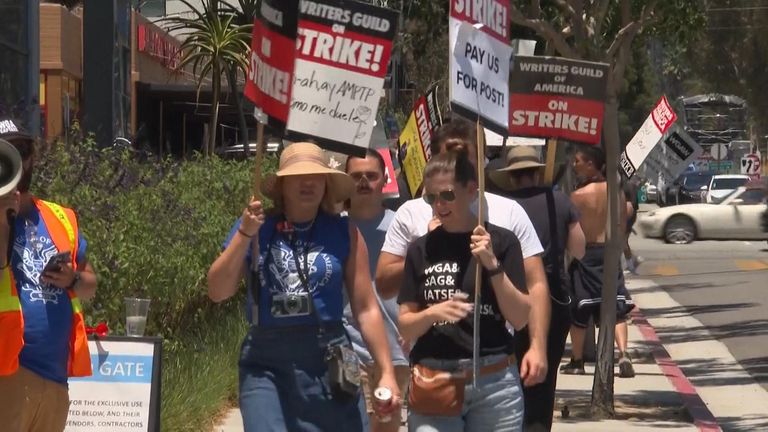
Another fear is the rise of artificial intelligence and the concern that an actor’s digital likeness could be used without their knowledge.
“AI just doesn’t belong in Hollywood, especially not in a writer’s room,” actor Jeante Godlock says. “All the TV shows that we watch, that we love, those one liners, they came from humans, and they came from human trauma, honestly. All the pain, the joy. It’s what we love to watch.”
The strike also means the red carpet events, the press junkets and the film premieres will stop – almost overnight. If it continues for weeks or even months, as many here think it will, the impact on the local economy could amount to billions of dollars.
Please use Chrome browser for a more accessible video player
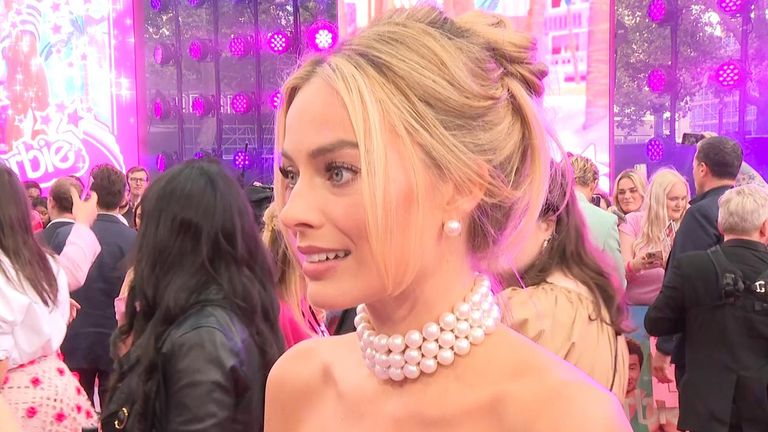
0:14
Margot Robbie would join actor strike
I ask John Patrick Daley, an actor, how long he’s willing to be on strike. “As long as it takes, I’m an actor,” he says, “You chose the wrong group to mess with in terms of not being employed because we are good at this.”
It is clear from the rhetoric that both sides remain very far apart on key issues. Hollywood is still recovering from the pandemic and an economic crisis. It is an uncomfortable time for workers and for the studio. It will now be a case of who blinks first.


